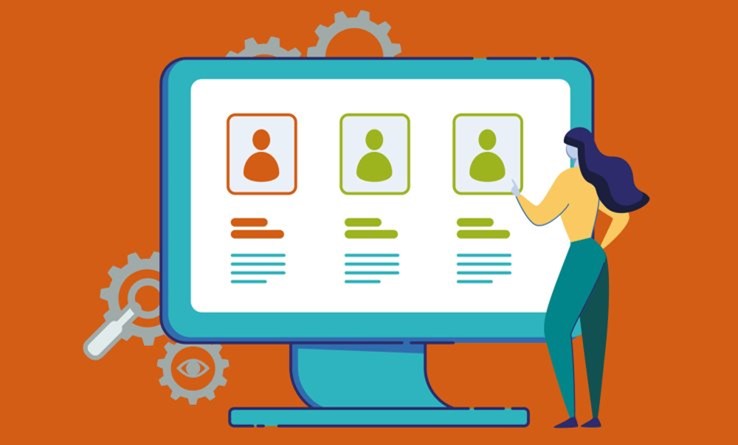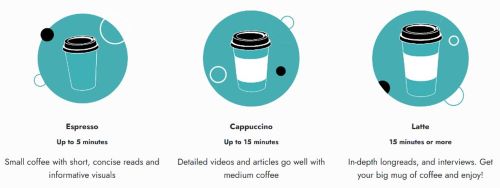Learn to Discern (L2D) Online Tools for Building Resilience to Information Manipulation

IREX's online Learn to Discern tools and courses build resilience to manipulative information through short interactive lessons designed to help users better understand their information ecosystem and to recognize and resist intentionally manipulative content.
All Learn to Discern learning tools share the same features:
 Localized and resonant content to meet the needs of learners in each context
Localized and resonant content to meet the needs of learners in each context - Fun and engaging elements that sustain engagement and ensure completion
- Relevant and interesting lessons that build knowledge and skills for resilience to manipulative information
Quick Facts
Very Verified courses use short lessons which convey content in a variety of audio and visual formats form videos, images, text, to quizzes. They cover topics such as:
- Today’s media and information universe and its infrastructure
- The role of human cognition and emotions when engaging with information
- Features and role of professional media
- Social media
- Manipulative information and hate speech, and
- Skills for effective, empathy-driven digital citizenship
IREX's Online Learn to Discern Offering
- Very Verified Ukraine: An online Learn to Discern course offered in English, Ukrainian, and Russian for adult learners in Ukraine. It has been adapted for several different contexts and locations, including:
- Very Verified Albania: An online Learn to Discern course in Albanian for adult learners in Albania and Albanian audiences in the Balkans.
- Very Verified North Macedonia: An online Learn to Discern course in Macedonian for adult learners in North Macedonia.
- Very Verified Kosovo: An online Learn to Discern course in English for adult learners in Kosovo.
- Very Verified Serbia: An online Learn to Discern course in Serbian for adult learners in Serbia.
- Very Verified Baltics: An online Learn to Discern course available in five languages (Estonian, Latvian, Lithuanian, English and Russian) for adult learners in the Baltics.
- Literata: An online information literacy course and game for in Indonesian for Indonesian residents. The site includes the game Gali Fakta, in which users can practice their new media and information literacy skills.
- Jordan Learning Management System: An online Learn to Discern course for youth and adults in Jordan, taught in Arabic. For participants in IREX programs in Jordan, the online training provided through this course is blended with other online meetings and activities, led by IREX staff and local facilitators from each program.
- The Great Courses Online Course: An online course on digital media literacy tailored to a U.S. context, hosted by three IREX experts on media and information literacy.
- Several internal Learn to Discern-adapted courses for participants of other IREX-implemented programs, including the Community Solutions Program, The Mandela Washington Fellowship for Young African Leaders (YALI), and others.
Reach and Impact
 Learn to Discern online tools are not only fun and engaging, they are also impactful. Across 11 countries, over 100,000 people have interacted with course materials and over 18,300 individuals have completed them, either in a self-paced manner or as part of a blended-learning experience, complemented by facilitator-led workshops.
Learn to Discern online tools are not only fun and engaging, they are also impactful. Across 11 countries, over 100,000 people have interacted with course materials and over 18,300 individuals have completed them, either in a self-paced manner or as part of a blended-learning experience, complemented by facilitator-led workshops.
The original and most long-standing course - Very Verified Ukraine alone has received over 80,000 views and issued over 13,000 certificates of completion. A recent analysis found that the average completion rate across all courses is over 35%.
Learn to Discern courses have demonstrated impact on learners’ skills. Our illustrative results are as follows:
- In Ukraine, ability to identify hate speech more than doubled. Learners also demonstrated a 31% improvement in media analysis skills among those who took the course.
- In Serbia, learners improved their awareness and knowledge of media and information structures by 42%.
- In Jordan, female community leaders increased their critical information engagement skills by 67%.
- In Indonesia, learners have been found significantly less likely to share misinformation with their networks compared to those who had not visited the site.
Contact
Email: Sarah Bushman, sbushman@irex.org or Lara Azar, lazar@irex.org